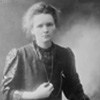Scholarly Personae and Twentieth-Century Historians: Explorations of a Concept
DOI:
https://doi.org/10.18352/bmgn-lchr.10263Keywords:
Scholarly Persona, Embodiment, Epistomology, Dutch HistoriansAbstract
In this article Bosch argues in favour of an understanding of the concept of ‘persona’ in which embodiment means more than the conclusion that everything that men do originates in or arises from a body. Following historians of science and their biographical achievements, Bosch considers being perceived as a reliable and trustworthy scientist or scholar as the core of the formation of a scientific/scholarly identity or persona that scientists and scholars can perform in a specific context. They do so with an eye to how other scientists perform their identities and with the creative use of old and new repertoires of scientific performance and social constructions of identity (for instance in terms of gender, class or race) that contribute to scientific authority.
By focussing on the scientific or scholarly persona or the self-fashioning in biographies of scholars and scientists, such works can elucidate the epistemology of a discipline or field of research, especially with respect to the question of who earns scientific authority on what grounds. After a thorough discussion of the relevant literature relating to scientific biography or the biographical approach to historiography in which the concept of persona plays a role, Bosch, by way of a light exercise, applies her definition of persona to the analysis of an eclectically selected group of Dutch historians, men and women.
This article is part of the special issue 'Scholarly Personae'.
Wetenschappelijke personae en twintigste-eeuwse historici. Verkenning van een concept
Bosch pleit in dit artikel voor een opvatting van het concept ‘persona’ waarin ‘embodiment’ of belichaming meer is dan de vaststelling dat alles wat mensen doen een oorsprong heeft in of voortkomt uit een lichaam. In navolging van wetenschapshistorici en hun biografische verrichtingen ziet Bosch het worden waargenomen als een betrouwbaar en geloofwaardig wetenschapper als de kern van de vorming van een wetenschappelijke identiteit of wetenschappelijke persona die wetenschapsbeoefenaars in een bepaalde tijd en context kunnen aannemen. Zij doen dat met oog voor hoe collega-wetenschappers dat doen en door de creatieve inzet van oude en nieuwe repertoires van wetenschappelijk gedrag en van sociale constructies van identiteit (bijvoorbeeld van gender of klasse) die bij kunnen dragen aan wetenschappelijk gezag.
Door te focussen op de wetenschappelijke persona of de self-fashioning van de wetenschapper in de biografie van wetenschappers en geleerden kan de biografie licht werpen op de epistemologie van een vak, met name waar het gaat om wie wel of niet op welke gronden wetenschappelijk gezag verwerft. Na een bespreking van de relevante literatuur op het gebied van wetenschapsbiografie en de biografische benadering van historiografie waarin het persona-begrip een rol speelt, past Bosch haar concept van persona bij wijze van oefening toe op een eclectisch samengestelde groep Nederlandse historici, mannen en vrouwen.
Dit artikel maakt deel uit van het themanummer 'Scholarly Personae'.
Downloads

Published
Issue
Section
License
Authors who publish with this journal agree to the following terms:
a) Authors retain copyright and grant the journal right of first publication with the work simultaneously licensed under a Creative Commons Attribution 4.0 International (CC BY 4.0) that allows others to share the work with an acknowledgement of the work's authorship and initial publication in this journal.
b) Authors are able to enter into separate, additional contractual arrangements for the non-exclusive distribution of the journal's published version of the work (e.g., post it to an institutional repository or publish it in a book), with an acknowledgement of its initial publication in this journal.
c) Authors are permitted to post their work online (e.g., in institutional repositories or on their website) prior to and during the submission process.
Authors are explicitly encouraged to deposit their published article in their institutional repository.








